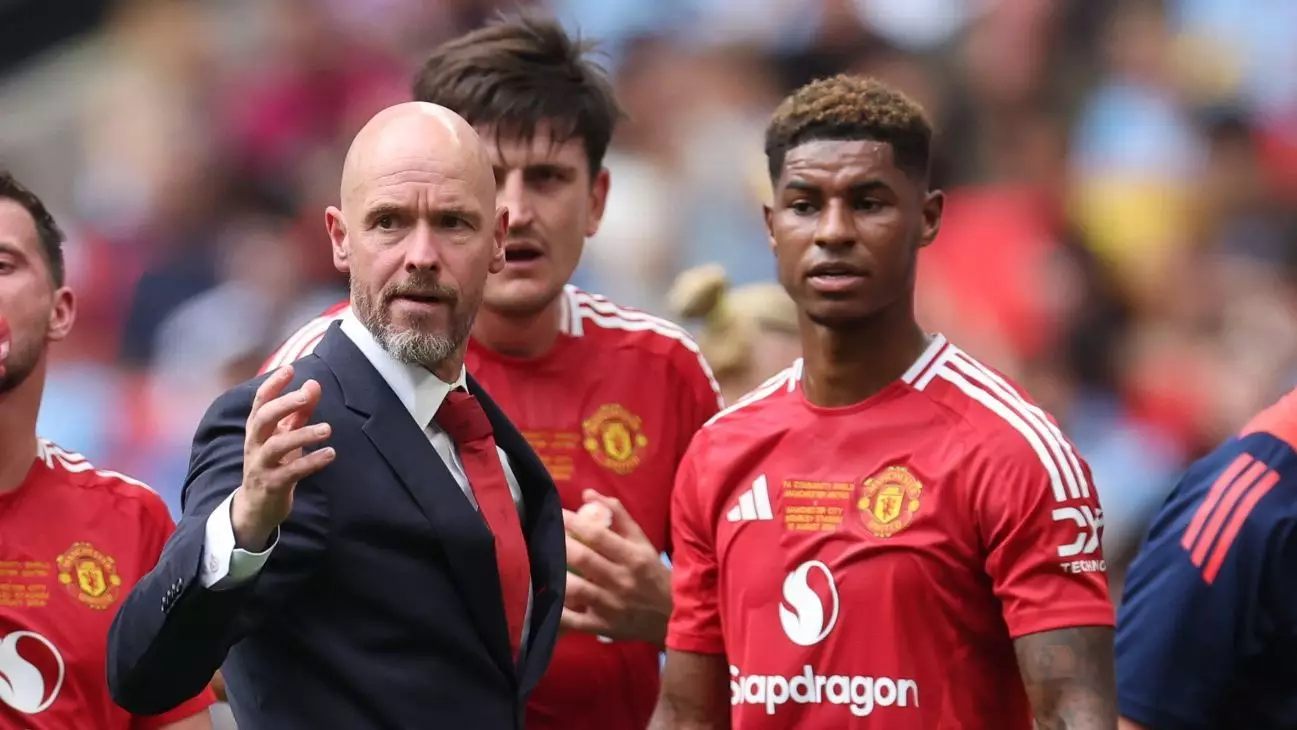In a gripping encounter at Selhurst Park, Manchester United faced Crystal Palace in a match that highlighted both the potential and the pitfalls of Erik ten Hag’s managerial approach. While United dominated possession in the first half, their inability to convert chances into goals resulted in a frustrating 0-0 draw. This outcome marked another stumbling block in United’s still-developing season, leaving them languishing in the lower tiers of the Premier League table as they grapple with seven points after five matches.
One of the pivotal decisions that has ignited debate among pundits and fans alike was Ten Hag’s choice to bench Marcus Rashford, especially after the forward had made a significant impact in prior matches. Only days before taking the bench, Rashford had scored in a commanding victory against Southampton, contributing further to his team’s success with a brace in a subsequent match against Barnsley. Thus, the rationale behind this tactical shift raised eyebrows. Was it merely a tactical rotation, or was it indicative of deeper issues between the player and his manager?
Ten Hag vehemently dismissed the speculation, calling out pundits for their assertions regarding a potential rift between him and Rashford. He firmly stated that the decision was strictly due to rotation, emphasizing his satisfaction with Rashford’s contribution to the squad. Ten Hag’s statements reflect the need for managers to navigate public perceptions and media narratives while focusing on team strategy.
In Rashford’s absence, Alejandro Garnacho stepped into the lineup but struggled to make his mark, squandering crucial scoring opportunities, including a shot that struck the crossbar. Such moments emphasize the delicate balance managers must strike in selecting starting line-ups; the decisions made directly impact team performance. Ten Hag’s implementation of rotation is essential for maintaining player health and stamina throughout the grueling season, though it raises the question: how much rotation is too much?
The scrutiny on managers’ tactical decisions reflects society’s broader obsession with football narratives. Pundits, like Jamie Redknapp, suggested hidden motivations behind Ten Hag’s choices, which in turn sometimes distract from the reality that the outcome of a match can hinge on mere moments of missed opportunities, rather than a single player’s absence.
The draw against Crystal Palace has significant implications for Manchester United as they continue to search for consistency and form. The upcoming fixtures against FC Twente in the Europa League and a visit to Tottenham will be crucial in shaping the remainder of their season. Both Ten Hag’s tactical decisions and the players’ ability to execute will be under the microscope. For fans, the narrative will likely weave between expectations, reality, and the tantalizing possibility of redemption as the season progresses.
The conversation surrounding Ten Hag’s benching of Marcus Rashford encapsulates the broader themes of coaching decisions, player dynamics, and public scrutiny. As the season unfolds, it remains to be seen how Ten Hag, and indeed Manchester United, will respond to these challenges.


Leave a Reply